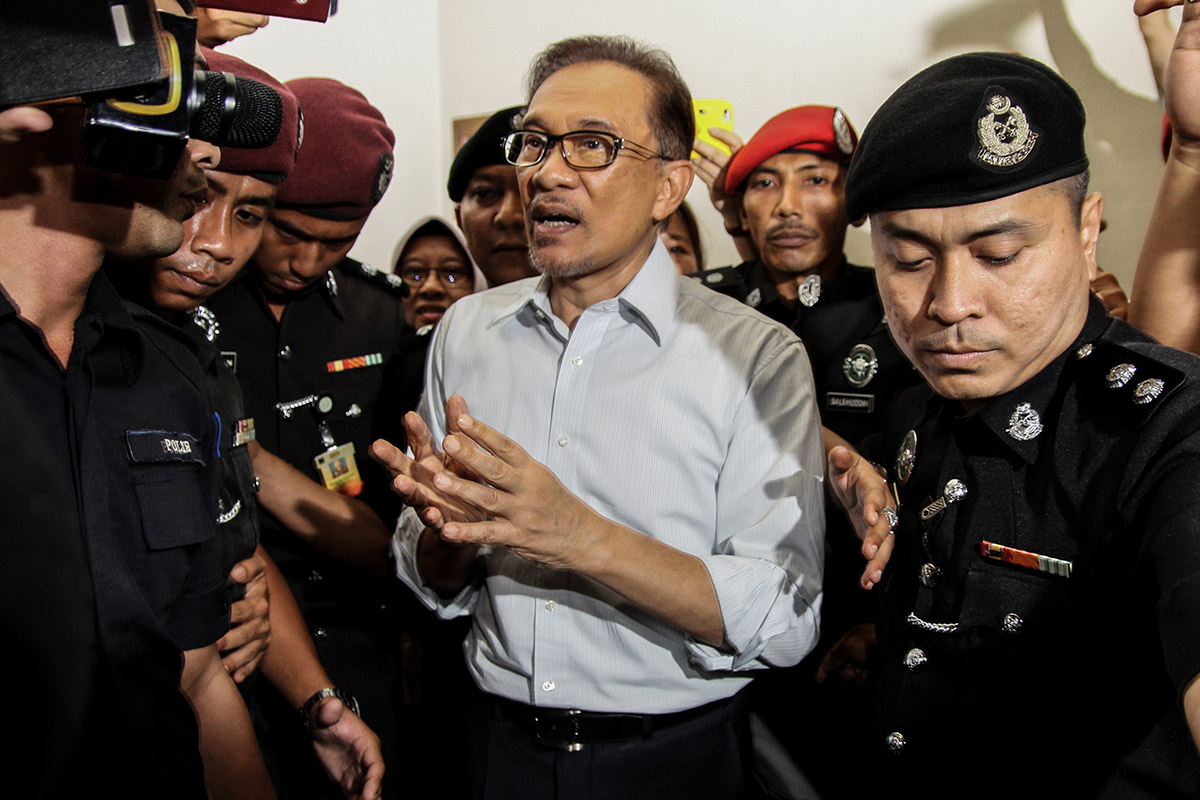Jailed Malaysian opposition leader, Anwar Ibrahim is still hospitalised but is currently in a stable condition, according to a press statement released by his party.
The 70-year-old was rushed to the Kuala Lumpur Hospital, located in the nation’s capital on Tuesday when his blood pressure became erratic due to a shoulder injury sustained earlier.
When contacted by The ASEAN Post, the spokesperson for Anwar’s party, Fahmi Fadzil said that the former Malaysian lawmaker would tentatively be discharged on Friday and would be subsequently brought to the hospital for follow ups.
“For his condition with his shoulder, he has to see a specialist which is why he needs to be brought from the prison to the hospital instead of just seeing a doctor within the prison itself,” he stated.
He added that "In his previous incarceration, he was brought for physiotherapy more frequently than he does now."
When asked if it would affect Anwar’s position within the opposition, he said that there will not be any changes to the opposition's leadership structure, given his recent medical condition.
Anwar was sentenced to a five-year imprisonment for sodomising his aide, Saiful Bukhari Azlan. He was previously cleared by the High Court in 2012, but lost in the appeal made by the prosecution. His conviction and sentence has been condemned by many quarters including Human Rights Watch and Amnesty International which called it a politically motivated move by the current Prime Minister, Najib Razak who is also the leader for the ruling National Front party.
The government maintains that “exhaustive and comprehensive due process has been followed” and Anwar’s conviction is proof of an independent judiciary in Malaysia.
Anwar is due to be released from prison in 2018 but would be disqualified from running for public office until 2023 under the Malaysian law. Nevertheless, he will play an important role within the ranks of the opposition who have announced their ambitions to take over the leadership of the government in the next general election.
This is Anwar’s second spell in prison after suffering a similar fate in the hands of former premier and then head of the National Front party, Mahathir Mohammad in 1998. At the time, his unceremonious dismissal from the government and the National Front party sparked nationwide protests and demonstrations under the Reformasi (Reform) movement which called for Mahathir’s resignation and institutional reforms.
Anwar then formed his own political party and managed to band together a disenfranchised opposition to form a coalition and contest in subsequent general elections. He has a wealth of experience in government, having been the deputy prime minister and even acting prime minister in the 90s. As a seasoned politician, his charisma and charm helped sway many young, urban voters away from the ruling coalition and helped him secure the popular vote in the 2013 general election.
However, the opposition coalition only stood strong for as long as Anwar was a free man. A mere four months after his incarceration, the coalition disbanded.
As the country stands on the precipice of the next general election, a new opposition coalition has risen from the ashes of its failures. This time with 92-year-old Mahathir in the picture after the former prime minister suffered a falling out with Najib. Now, Anwar finds himself in a unique position, having to put the past behind him and join hands with his former nemesis to face the current ruling party in the upcoming general election slated for 2018.
If the previous two elections have taught Malaysians anything, is that Anwar was an integral figure in shaping the opposition. With recent developments to his health conditions, only time will tell if that will continue to be the case.
